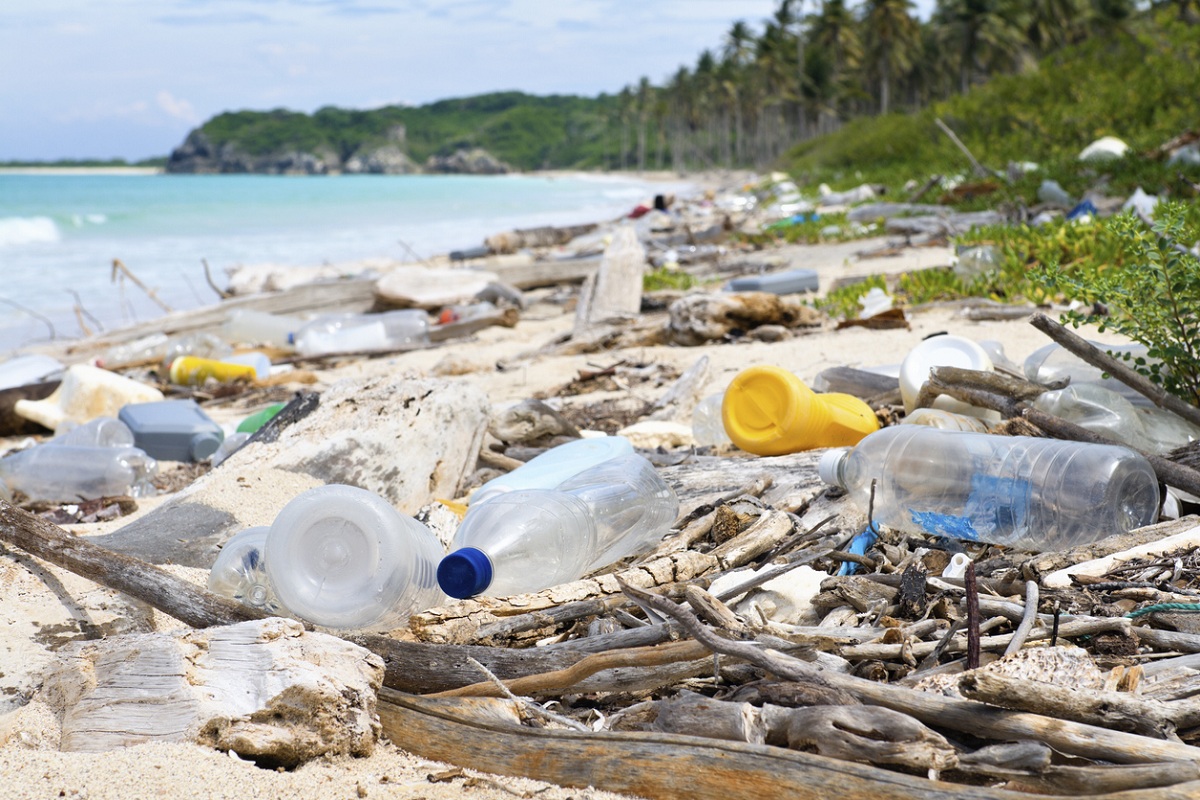As crisis grows, time to revisit plastics policy
Plastic pollution is reaching epic proportions. Traces of plastic have been found in human blood, placenta and even in breast milk.
Plastic pollution is disrupting food chains vital to animal and human health, and in turn, accelerating the heating of the Ocean.

(Representational Image)
Globally combined, we dump the equivalent of one garbage truck of trash into our oceans every minute. Based on current projections, the amount of plastic trash in the oceans will double by 2030 and nearly triple by 2040 to 29 million metric tonnes per year ~ left unchecked, there will be more plastic in our oceans than fish. Plastic pollution is disrupting food chains vital to animal and human health, and in turn, accelerating the heating of the Ocean. It has to stop. This is why 175 countries came together at the UN Environment Assembly in Nairobi earlier this year with plastic pollution and marine debris as an urgent shared priority. On the final day, the resolution “End Plastic Pollution: Towards an Internationally Legally Binding Instrument” was confirmed. An international agreement of this kind is unprecedented. It is specifically designed to promote sustainable production and consumption of plastic, as well as sound waste management, circular economy approaches, reporting measures, compliance, and financial mechanisms to support implementation.
It’s a milestone in the efforts to protect planet earth. But it’s late, and there’s still lots of work to do globally, regionally and also nationally here in Viet Nam, where an estimated 730,000 tonnes of plastic enters the ocean every year, placing Viet Nam as one of the top five marine plastic waste contributors in the world.
Advertisement
The economy of the sea and coastal provinces and cities of Viet Nam ~ which has a long coastline of more than 3,260km ~ accounted for approximately 47-48 per cent of the country’s Gross Development Product (GDP) as of 2016 and is expected to contribute up to 65-70 per cent of GDP by 2030. Which is why Vi?t Nam is taking ocean health seriously, as evidenced by its national goal of reducing 75 per cent of its marine plastic by 2030 and revisions to the Law on Environmental Protection (LEP), which becomes effective in 2022.
Advertisement
Along with the action plan to eliminate single-use plastics and non-biodegradable plastic bags from all coastal tourism areas, the revised law includes a transition from the traditional linear economy ~ make, use, dis- charge ~ to a circular economy, designed to reduce the exploitation of materials, extend the lifespan of products and reduce waste and adverse environmental impacts with innovations and recycling. At the COP26 meeting in Glasgow last November, Prime Minister stressed the need for Viet Nam to transition towards a green, circular, sustainable, inclusive, and humanistic economy. As Viet Nam looks to build forward better from Covid-19, it’s time to work towards climate action, circular economy and gender equality together as interconnected issues.
Viet Nam’s informal waste workers ~ typically low-paid women from rural areas or ethnic minorities who collect waste for recycling ~ are already playing a key role in working towards a circular economy but they must be included in policy formulation and given access to financial and technical resources. In 2021, the Norwegian Embassy and UNDP signed the agreement for a new project ‘Scaling-up Integrated and Inclusive Waste Management Models through Empowering the Informal Sector and Fostering the Circular Economy’ ~ a three-year project that is deploying and testing interventions, including a management model in the fishery sector, and an ecosystem-approach to value chains through the establishment of a Material Recovery Facility.
Advertisement